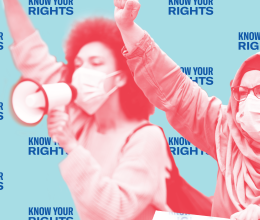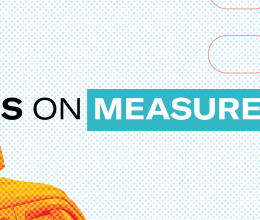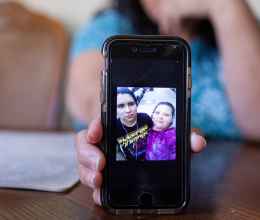
I should still be in prison right now.
Instead of being a clinical social worker pursuing my doctorate while raising three children with my wife in Irvine, California, I should still be incarcerated until 2023, struggling to survive under the pretext of public safety. Fortunately, I was released early from prison three years ago after serving over 16 years of my sentence.
When I was a teenager, an Orange County judge sentenced me to 24 years in prison for a robbery in which no one was physically harmed. This was significantly less time than the assistant district attorney (DA) had pursued.
There were no talks of diversion programs. There was no consideration of whether a focus on rehabilitation instead of vengeance would have benefitted the community more in the long term. There was no consideration of the impact of locking me up around other discarded human souls whose undiagnosed trauma continually compounded until they were released back into a community that had been rallied to despise them. Prior to being paroled early, an OC DA even argued to the parole board that I shouldn’t be released into the community due to “public safety” concerns.
Public safety was, and is, the much-ballyhooed talking point of status quo politicians and law enforcement agencies — status quo public safety policies that harm Black and Brown lives. Though the vast majority of people who are incarcerated eventually return to the community, many times we aren’t truly considered part of the community by many DA offices across the country. How we could benefit from being fully integrated into the community, and how the community can benefit from us, is often ignored by soulless criminal justice bureaucracies. Does it not make sense for the community to conceptualize public safety in a way that doesn’t rip Black and Brown families apart? Should we not take into consideration the long-term consequences of dangerous “public safety” malpractices?
According to an ACLU SoCal report, (In)justice in Orange County, children are transferred to adult court at more than twice the statewide rate, even though, as the report states, “Decades of research has found no evidence of any deterrent effect of transferring minors into the criminal (adult) legal system." Among its many recommendations, regarding youth, the report calls for:
- Never charging children as adults and working with community partners to develop rehabilitative alternatives to placement at the Department of Juvenile Justice;
- Establishing an open line of communication and developing meaningful relationships and partnerships with a variety of community stakeholders, especially with individuals, families, and communities most impacted by the criminal legal system in OC; and
- Work with the OC Board of Supervisors to ensure that funding saved from declining to prosecute low-level crimes be redirected outside of the DA’s office to community-based restorative justice programming and supportive services.
The Young Adult Court (YAC) of the OC Superior Court has stepped up to the challenge of providing holistic services to incarcerated youth. The YAC holds people who commit crime accountable while also understanding that the safety of the community can be measured in metrics besides how many community members are incarcerated for the longest amount of time possible. It sees public safety as community wholeness and believes in the capacity for human beings to recover from a lifetime of trauma and marginalization to become leaders in their communities.
As a clinical social worker for the YAC in OC, I talk to youth, ages 18 to 25, to see if they’re eligible for the program. If a person is found eligible, I work as part of a collaborative team – that includes a superior court judge, probation officer, ADA, public defender, and community resources case manager. The YAC provides clinical mental health interventions, support with education services, job development, job placement, housing stability, and crisis interventions if needed. Youth who graduate from the program with their case dismissed are poised to be successful members of the community. This is how you reduce the otherwise unconscionably high recidivism rate. The YAC program is a more durable, equitable, and just solution to public safety.
The number of transitional age youth we serve is limited, though. YAC is funded by grants from outside of the county and the DA’s office. We need the public to support justice reform initiatives and district attorney policies to expand the eligibility criteria so that many more incarcerated community members, and consequently, many more communities, can become more whole and safer. Let’s stop falling for the politically expedient talking point of opening and expanding jails due to public safety concerns. Let’s stop putting youth in jails. Instead, let’s reimagine public safety and what it means to be a community.
Read our report on the Orange County District Attorney's Office
Yehudah Pryce is a member of the Los Angeles District Attorney Accountability Coalition, for which he published a report on Criminalizing Victims and Trauma.






